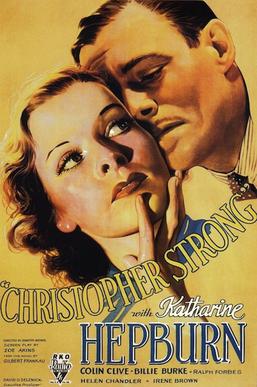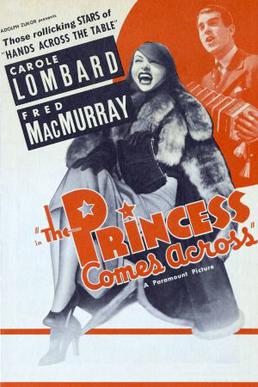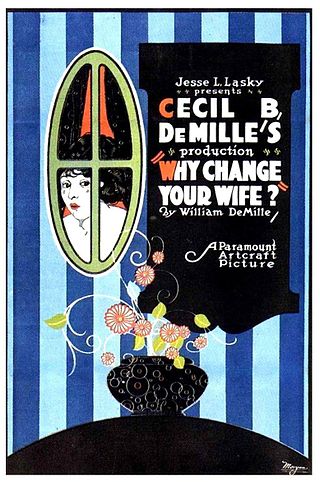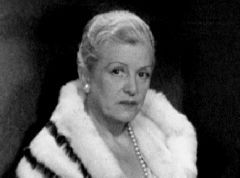
Naughty Marietta is a 1935 American romantic musical film based on the 1910 operetta of the same name by Victor Herbert. Jeanette MacDonald stars as a princess who flees an arranged marriage. She sails for New Orleans and is rescued from pirates by Captain Richard Warrington. Five of Herbert's most famous songs come from the score of Naughty Marietta, with words by lyricist Rida Johnson Young: "Ah! Sweet Mystery of Life", "Italian Street Song", "Neath the Southern Moon", "I'm Falling in Love with Someone" and "Tramp! Tramp! Tramp! ". Additional lyrics for several of Herbert's songs were penned for the film by Gus Kahn. The film was written by Frances Goodrich, Albert Hackett, John Lee Mahin and Rida Johnson Young.

42nd Street is a 1933 American pre-Code musical film directed by Lloyd Bacon, with songs by Harry Warren (music) and Al Dubin (lyrics). The film's numbers were staged and choreographed by Busby Berkeley. It stars an ensemble cast of Warner Baxter, Bebe Daniels, George Brent, Ruby Keeler, Dick Powell and Ginger Rogers.

Christopher Strong is a 1933 American pre-Code romantic drama film produced by RKO and directed by Dorothy Arzner. It is a tale of illicit love among the English aristocracy and stars Colin Clive and Katharine Hepburn. The screenplay by Zoë Akins is an adaptation of the 1932 British novel Christopher Strong by Gilbert Frankau.

Kid Millions is a 1934 American musical film directed by Roy Del Ruth, produced by Samuel Goldwyn Productions, and starring Eddie Cantor. Its elaborate "Ice Cream Fantasy Finale" production number was filmed in three-strip Technicolor, one of the earliest uses of that process in a feature-length film.

The Maltese Falcon is a 1931 American pre-Code crime film based on the 1930 novel The Maltese Falcon by Dashiell Hammett and directed by Roy Del Ruth. The film stars Ricardo Cortez as private detective Sam Spade and Bebe Daniels as femme fatale Ruth Wonderly. The supporting cast features Dudley Digges, Thelma Todd, Walter Long, Una Merkel, and Dwight Frye. Maude Fulton and Brown Holmes wrote the screenplay; one contemporaneous report said that Lucien Hubbard was assisting them.

The Princess Comes Across is a 1936 American mystery comedy film directed by William K. Howard and starring Carole Lombard and Fred MacMurray, the second of the four times they were paired together. Lombard, playing an actress from Brooklyn pretending to be a Swedish princess, does a "film-length takeoff" on MGM's Swedish star Greta Garbo. The film was based on the 1935 novel A Halálkabin by Louis Lucien Rogger, the pseudonym of Laszlo Aigner and Louis Acze.

Sunny is a 1930 American pre-Code musical comedy film directed by William A. Seiter and starring Lawrence Gray, O. P. Heggie, and Inez Courtney. It was produced and released by First National Pictures. The film was based on the Broadway stage hit, Sunny, produced by Charles Dillingham, which played from September 22, 1925, to December 11, 1926. Marilyn Miller, who had played the leading part in the Broadway production, was hired by Warner Brothers to reprise the role that made her the highest-paid star on Broadway.

The Woman in Red is a 1935 American drama film directed by Robert Florey and starring Barbara Stanwyck and Gene Raymond. Based on the novel North Shore by Wallace Irwin, the film is about a woman equestrian who meets and falls in love with a traveling polo player from a once wealthy family. After they are married, she is persuaded to entertain her friend's wealthy client aboard a yacht. The client accidentally drowns, and her friend is arrested for his murder. Determined to keep her name out of the press, the friend does not reveal that he has a witness who can prove his innocence.

Don't Shove is a 1919 American short comedy film featuring Harold Lloyd. Prints of the film exist at the Library of Congress, the UCLA Film and Television Archive, the Museum of Modern Art, and the Cinémathèque québécoise.

Why Change Your Wife? is a 1920 American silent comedy film directed by Cecil B. DeMille and starring Gloria Swanson.

The Greatest Thing in Life is a 1918 American silent drama film about World War I, directed by D. W. Griffith and starring Lillian Gish, Robert Harron, and David Butler. The film is now considered lost as no prints are known to exist.

The Hard Way is a 1943 Warner Bros. musical drama film starring Ida Lupino, Dennis Morgan, and Joan Leslie. Directed by Vincent Sherman, it is based on a story by Irwin Shaw which was reportedly based on Ginger Rogers' relationship with her first husband Jack Pepper and her mother Lela.

Silver Dollar is a 1932 American pre-Code biographical film starring Edward G. Robinson, Bebe Daniels and Aline MacMahon. Based on David Karsner's biography of the same name, it tells the story of the rise and fall of Horace Tabor, a silver tycoon in 19th century Colorado.

Love Comes Along is a 1930 American romantic film directed by Rupert Julian, written by Wallace Smith, based on the uncompleted play Conchita by Edward Knoblock. It was a vehicle specifically picked to highlight the vocal talents of Bebe Daniels, which also starred Lloyd Hughes and Montagu Love. It made a profit of $258,000.

Registered Nurse is a 1934 American Pre-Code drama film produced by First National Pictures and released through its parent company Warner Bros. The film was directed by Robert Florey and stars Bebe Daniels in her final role for Warner Bros.

Argentine Love is a 1924 American silent romantic drama film directed by Allan Dwan and based on a short story by Vicente Blasco Ibanez that stars Bebe Daniels.

Miss Bluebeard is a 1925 American silent comedy film directed by Frank Tuttle and starring Bebe Daniels. It is based on a play, Little Miss Bluebeard, by Avery Hopwood.

Oh, Lady, Lady is a lost 1920 American silent comedy romance film directed by Major Maurice Campbell and starring Bebe Daniels. It is based on a popular 1918 Broadway stage musical, Oh, Lady! Lady!!

The Crowded Hour is a 1925 American silent drama film directed by E. Mason Hopper and starring Bebe Daniels. It was produced by Famous Players–Lasky and distributed by Paramount Pictures. It is based on the 1918 Broadway play, The Crowded Hour, by Channing Pollock and Edgar Selwyn.

Florence Wix was an English-born American character actress who worked from the 1920s in silent films through sound films of the 1950s.




















